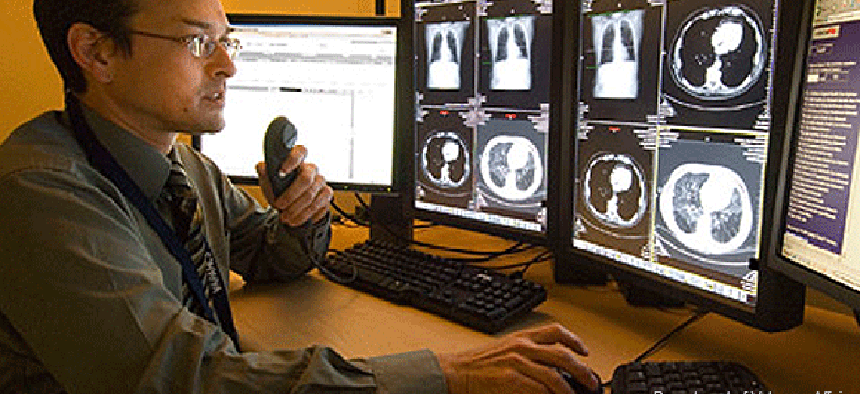Prisons turn to telemedicine for treating inmates


Connecting state and local government leaders
Maturing technology and budget pressures make telemedicine a viable, money-saving practice for corrections departments.
Using telemedicine to reduce costs and improve treatment outcomes for remote patients has been in the works since the early 1990s, and it has lately gained traction with public-sector agencies. The Veterans Affairs Department tested a system in 2011, and the Army tested a 4G battlefield system last year.
Employing telemedicine in correctional facilities also has obvious benefits, giving states and local jurisdictions the ability to get health consultation and treatment to inmates without the cost of securely transporting them to medical facilities. Adoption so far has been slow, but as state budgets tighten, prisons become ever more crowded and the inmate population ages, that is changing. Combined with the increasing maturity in mobile, health IT, videoconferencing and communication technologies, more states are launching or outsourcing telemedicine programs.
In June, the Colorado Department of Corrections and the Denver Health Medical Center will launch a pilot program using high-definition video conferencing for inmates who need consultations in rheumatology, infectious disease, orthopedics and general surgery, according to an article in Government Technology. Because both Denver Health and the Colorado Department of Corrections have modern video conferencing systems, the article said, there are no up-front costs associated with the program for either party, which has been cited as a barrier to entry for smaller hospitals and prisons.
In Wyoming, where almost everywhere is remote, teleheath services for prison inmates help address challenges of distance and distribution of doctors. According to HealthcareITnews, the Wyoming department of Prison Health Services has been able to dramatically increase the range of clinical services, including mental health and specialist services. In 2011, approximately 2,000 physician visits were conducted via remote connection.
Likewise, the Department of Corrections in Louisiana is on the verge of signing a contract to provide 17,000 annual checkups to thousands of inmates, increasing telemedicine by nearly 600 percent, a report on WBRZ stated.
Mental health services to prisoners also can be delivered via face-to-face consultations over mobile devices. Wind Currents, one of the providers of these systems, estimates a state can save $30,000 to $40,000 a month with its system, which includes a hosted Voice over IP platform, video software and special videophones, according to the Mobiledia website.





